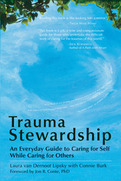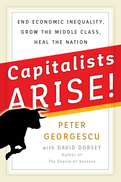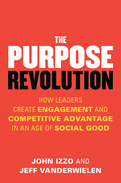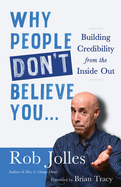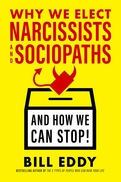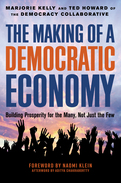Search Results: "Speaking Up"
Results 385-390 of 396
Trauma Stewardship
2009
This beloved bestseller—over 180,000 copies sold—has helped caregivers worldwide keep themselves emotionally, psychologically, spiritually, and physically healthy in the face of the sometimes overwhelming traumas they confront every day.
A longtime trauma worker, Laura van Dernoot Lipsky offers a deep and empathetic survey of the often-unrecognized toll taken on those working to make the world a better place. We may feel tired, cynical, or numb or like we can never do enough. These, and other symptoms, affect us individually and collectively, sapping the energy and effectiveness we so desperately need if we are to benefit humankind, other living things, and the planet itself.
In Trauma Stewardship, we are called to meet these challenges in an intentional way. Lipsky offers a variety of simple and profound practices, drawn from modern psychology and a range of spiritual traditions, that enable us to look carefully at our reactions and motivations and discover new sources of energy and renewal. She includes interviews with successful trauma stewards from different walks of life and even uses New Yorker cartoons to illustrate her points.
“We can do meaningful work in a way that works for us and for those we serve,” Lipsky writes. “Taking care of ourselves while taking care of others allows us to contribute to our societies with such impact that we will leave a legacy informed by our deepest wisdom and greatest gifts instead of burdened by our struggles and despair.”
A longtime trauma worker, Laura van Dernoot Lipsky offers a deep and empathetic survey of the often-unrecognized toll taken on those working to make the world a better place. We may feel tired, cynical, or numb or like we can never do enough. These, and other symptoms, affect us individually and collectively, sapping the energy and effectiveness we so desperately need if we are to benefit humankind, other living things, and the planet itself.
In Trauma Stewardship, we are called to meet these challenges in an intentional way. Lipsky offers a variety of simple and profound practices, drawn from modern psychology and a range of spiritual traditions, that enable us to look carefully at our reactions and motivations and discover new sources of energy and renewal. She includes interviews with successful trauma stewards from different walks of life and even uses New Yorker cartoons to illustrate her points.
“We can do meaningful work in a way that works for us and for those we serve,” Lipsky writes. “Taking care of ourselves while taking care of others allows us to contribute to our societies with such impact that we will leave a legacy informed by our deepest wisdom and greatest gifts instead of burdened by our struggles and despair.”
Capitalists Arise!
2017
Peter Georgescu arrived in this country as a penniless Romanian refugee and rose to become the CEO of Young & Rubicam. This is why he's so heartsick that with flat wages, disappearing jobs, and a shrinking middle class, his kind of rags-to-riches story doesn't seem possible now. But he has a message for his fellow CEOs: we're the ones who must take the lead in fixing the economy.
Marshaling deeply sobering statistics, Georgescu depicts the stark reality of America today: a nation with greater wealth inequality and lower social mobility than just about any other country in the developed world. But the problem isn't that free-market capitalism no longer works—it's that it's been hijacked by shareholder primacy. Where once our business leaders looked to the needs and interests of a variety of stakeholders—employees, community members, the business itself—now they're myopically focused on maximizing their shareholders' quarterly returns.
Capitalists, Arise! shows how the short-term thinking spawned by shareholder primacy lies at the root of our current economic malaise and social breakdown. But Georgescu offers concrete actions that capitalists themselves can take to create a better future. The irony is that if businesses do this, shareholders will do even better. In the long run, businesses can thrive only when society is healthy and strong. This book is a manifesto calling on capitalists to heal the nation that has given them so much.
Marshaling deeply sobering statistics, Georgescu depicts the stark reality of America today: a nation with greater wealth inequality and lower social mobility than just about any other country in the developed world. But the problem isn't that free-market capitalism no longer works—it's that it's been hijacked by shareholder primacy. Where once our business leaders looked to the needs and interests of a variety of stakeholders—employees, community members, the business itself—now they're myopically focused on maximizing their shareholders' quarterly returns.
Capitalists, Arise! shows how the short-term thinking spawned by shareholder primacy lies at the root of our current economic malaise and social breakdown. But Georgescu offers concrete actions that capitalists themselves can take to create a better future. The irony is that if businesses do this, shareholders will do even better. In the long run, businesses can thrive only when society is healthy and strong. This book is a manifesto calling on capitalists to heal the nation that has given them so much.
Discover the Purpose Advantage!
Customers, employees, and investors are no longer satisfied with companies providing good products, good prospects, and good profits—they want them to do some social good, too. These “purpose-driven” companies do better on nearly every traditional metric: greater customer loyalty, higher retention, more innovation, and a healthier bottom line. But a nice mission statement and donations to charity won't make your company stand out. Using scores of real-world examples and practical exercises, John Izzo and Jeff Vanderwielen help leaders find a truly authentic purpose, one that is a natural fit for them and their organization. They describe concrete actions leaders can take to ensure that employees own it, customers and recruits connect with it, and every corporate action and activity reflects it.
Customers, employees, and investors are no longer satisfied with companies providing good products, good prospects, and good profits—they want them to do some social good, too. These “purpose-driven” companies do better on nearly every traditional metric: greater customer loyalty, higher retention, more innovation, and a healthier bottom line. But a nice mission statement and donations to charity won't make your company stand out. Using scores of real-world examples and practical exercises, John Izzo and Jeff Vanderwielen help leaders find a truly authentic purpose, one that is a natural fit for them and their organization. They describe concrete actions leaders can take to ensure that employees own it, customers and recruits connect with it, and every corporate action and activity reflects it.
For some, projecting confidence and credibility is second nature. For others, it seems like a foreign language they'll never learn – until now. Rob Jolles delivers down-to-earth solutions for anyone looking to enhance the most basic need of all; to be believed. He leverages his over 30 years of experience to equip readers with empowering and practical tools for achieving business and social success.
Jolles argues that credibility is as much about attitude as it is about aptitude. So-called “soft skills” like pitch, pace, and tone of voice, are actually some of the most crucial factors in determining how people perceive us. As he puts it, “it's not the words, it's the tune” that really makes us memorable and credible.
This book is about finding the necessary magic to help others believe you. It requires an unshakable belief in yourself, so Jolles starts there. With that as a solid foundation, you can move on to the specific tactics and practices that will make you credible and convincing. But these can be tough to practice in the face of the inevitable setbacks we all face, so he also offers advice on maintaining courage and confidence when doubt naturally creeps in. And he concludes with a discussion of sustaining your newfound credibility for the long haul.
There isn't a soul on earth who hasn't questioned themselves at some point. And most of us are just one or two brutal rejections away from questioning all that we are. Why People Don't Believe You helps readers cultivate a robust mental framework and a set of what Jolles calls “performance skills” to tackle these doubts. You are good enough –and after reading this stirring book, you'll be ready to make the world believe that as well.
Jolles argues that credibility is as much about attitude as it is about aptitude. So-called “soft skills” like pitch, pace, and tone of voice, are actually some of the most crucial factors in determining how people perceive us. As he puts it, “it's not the words, it's the tune” that really makes us memorable and credible.
This book is about finding the necessary magic to help others believe you. It requires an unshakable belief in yourself, so Jolles starts there. With that as a solid foundation, you can move on to the specific tactics and practices that will make you credible and convincing. But these can be tough to practice in the face of the inevitable setbacks we all face, so he also offers advice on maintaining courage and confidence when doubt naturally creeps in. And he concludes with a discussion of sustaining your newfound credibility for the long haul.
There isn't a soul on earth who hasn't questioned themselves at some point. And most of us are just one or two brutal rejections away from questioning all that we are. Why People Don't Believe You helps readers cultivate a robust mental framework and a set of what Jolles calls “performance skills” to tackle these doubts. You are good enough –and after reading this stirring book, you'll be ready to make the world believe that as well.
Bestselling author, therapist, lawyer, and mediator Bill Eddy describes how dangerous, high-conflict personalities have gained power in governments worldwide—and what citizens can do to keep these people out of office.
Democracy is under siege. The reason isn't politics but personalities: too many countries have come under the sway of high-conflict people (HCPs) who have become politicians. Most of these high-conflict politicians have traits of narcissistic personality disorder, antisocial (i.e., sociopathic) personality disorder, or both. This is the first and only guide for identifying and thwarting them.
HCPs don't avoid conflict, they thrive on it, widening social divisions and exacerbating international tensions. Eddy, the world's leading authority on high-conflict personalities, explains why they're so seductive and describes the telltale traits that define HCPs—he even includes a helpful list of forty typical HCP behaviors.
Drawing on historical examples from Hitler, Stalin, Mao, and Nixon to Trump, Maduro, and Putin, Eddy shows how HCPs invent enemies and manufacture phony crises so they can portray themselves as the sole heroic figure who can deal with them, despite their inability to actually solve problems. He describes the best ways to expose HCPs as the charlatans they are, reply to their empty and misleading promises, and find genuine leaders to support. Eddy brings his deep psychotherapeutic experience to bear on a previously unidentified phenomena that presents a real threat to the world.
Democracy is under siege. The reason isn't politics but personalities: too many countries have come under the sway of high-conflict people (HCPs) who have become politicians. Most of these high-conflict politicians have traits of narcissistic personality disorder, antisocial (i.e., sociopathic) personality disorder, or both. This is the first and only guide for identifying and thwarting them.
HCPs don't avoid conflict, they thrive on it, widening social divisions and exacerbating international tensions. Eddy, the world's leading authority on high-conflict personalities, explains why they're so seductive and describes the telltale traits that define HCPs—he even includes a helpful list of forty typical HCP behaviors.
Drawing on historical examples from Hitler, Stalin, Mao, and Nixon to Trump, Maduro, and Putin, Eddy shows how HCPs invent enemies and manufacture phony crises so they can portray themselves as the sole heroic figure who can deal with them, despite their inability to actually solve problems. He describes the best ways to expose HCPs as the charlatans they are, reply to their empty and misleading promises, and find genuine leaders to support. Eddy brings his deep psychotherapeutic experience to bear on a previously unidentified phenomena that presents a real threat to the world.
Our economy is designed by the 1 percent, for the 1 percent. This book offers a compelling vision of an equitable, ecologically sustainable alternative that meets the essential needs of all people.
We live in a world where twenty-six billionaires own as much wealth as half the planet's population. The extractive economy we live with now enables the financial elite to squeeze out maximum gain for themselves, heedless of damage to people or planet. But Marjorie Kelly and Ted Howard show that there is a new economy emerging focused on helping everyone thrive while respecting planetary boundaries.
At a time when competing political visions are at stake the world over, this book urges a move beyond tinkering at the margins to address the systemic crisis of our economy. Kelly and Howard outline seven principles of what they call a Democratic Economy: community, inclusion, place (keeping wealth local), good work (putting labor before capital), democratized ownership, ethical finance, and sustainability. Each principle is paired with a place putting it into practice: Pine Ridge, Preston, Portland, Cleveland, and more.
This book tells stories not just of activists and grassroots leaders but of the unexpected accomplices of the Democratic Economy. Seeds of a future beyond corporate capitalism and state socialism are being planted in hospital procurement departments, pension fund offices, and even company boardrooms.
The road to a system grounded in community, democracy, and justice remains uncertain. Kelly and Howard help us understand we make this road as we walk it by taking a first step together beyond isolation and despair.
We live in a world where twenty-six billionaires own as much wealth as half the planet's population. The extractive economy we live with now enables the financial elite to squeeze out maximum gain for themselves, heedless of damage to people or planet. But Marjorie Kelly and Ted Howard show that there is a new economy emerging focused on helping everyone thrive while respecting planetary boundaries.
At a time when competing political visions are at stake the world over, this book urges a move beyond tinkering at the margins to address the systemic crisis of our economy. Kelly and Howard outline seven principles of what they call a Democratic Economy: community, inclusion, place (keeping wealth local), good work (putting labor before capital), democratized ownership, ethical finance, and sustainability. Each principle is paired with a place putting it into practice: Pine Ridge, Preston, Portland, Cleveland, and more.
This book tells stories not just of activists and grassroots leaders but of the unexpected accomplices of the Democratic Economy. Seeds of a future beyond corporate capitalism and state socialism are being planted in hospital procurement departments, pension fund offices, and even company boardrooms.
The road to a system grounded in community, democracy, and justice remains uncertain. Kelly and Howard help us understand we make this road as we walk it by taking a first step together beyond isolation and despair.


